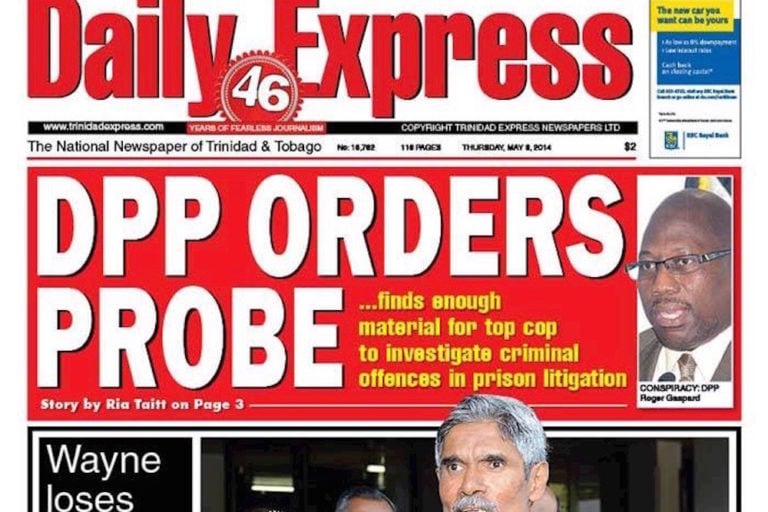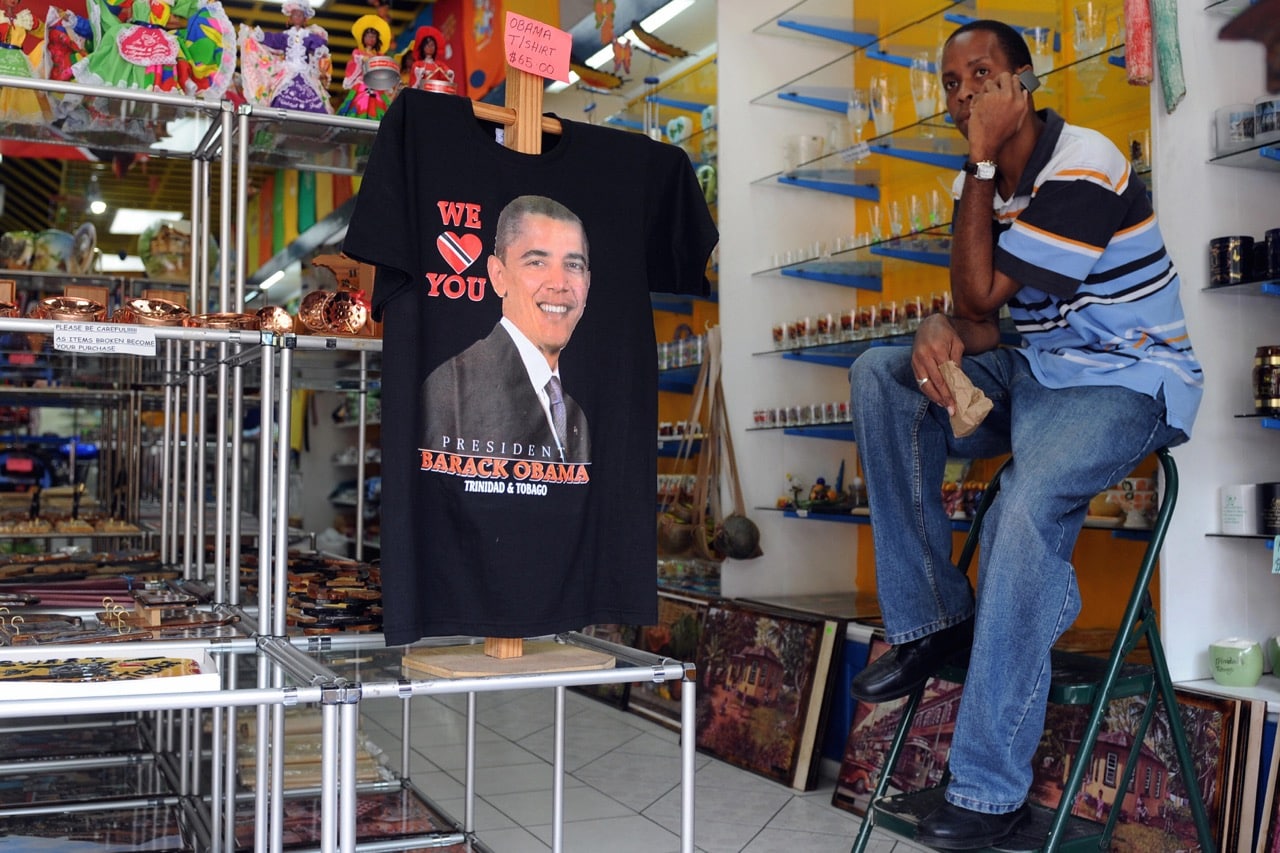IPI addressed an open letter to Dwayne Gibbs, Trinidad & Tobago’s Commissioner of Police, regarding recent intimidation tactics against journalists and media houses perpetrated by the police force.
(IPI/IFEX) – Vienna, Feb 16, 2012 – The International Press Institute (IPI) today addressed an open letter to Dwayne Gibbs, Trinidad & Tobago’s Commissioner of Police, regarding recent intimidation tactics against journalists and media houses perpetrated by the police force.
Earlier this week, the Anti-Corruption Investigations Bureau of Trinidad and Tobago conducted a raid on the offices of Newsday, searched a senior investigative journalist’s residence and requested that he reveal his sources. The moves follow similar actions, five weeks ago, against the Caribbean Communications Network Television 6 (CCN).
The full text of the letter, co-signed by the National Association of Black Journalists’ Global Journalism Task Force, the IPI North American Committee and Unity Journalists of Color, appears below.
16 February 2012
Commissioner Dwayne Gibbs
Commissioner of Police
Central Police Station
St. Vincent Street
Port of Spain
Trinidad
Dear Commissioner Gibbs:
It is with great concern that we write to you today regarding recent events involving the media and the police force in Trinidad and Tobago.
We find the invasion of the newsroom at Newsday newspaper and the removal of a journalist’s cell phones, computers and flash drive and then the subsequent search of the reporter’s home in order to ascertain the name of a source not only a violation of press freedom, but horrific, shocking and wholly unacceptable. And, last weekend’s act of police force unfortunately shows a pattern in recent months.
For many years, the freedom enjoyed by the media in Trinidad & Tobago has been held up as a model in the Caribbean. This freedom has allowed journalists and media outlets to develop a culture of professional and investigative journalism, which is a key pillar of any democratic society.
Trinidad and Tobago’s record on press freedom is exactly why the Vienna-based International Press Institute (IPI) made the unprecedented move to host its high-profile, annual World Congress there. It will be the first time in IPI’s 62-year history that the conference will be held in the Caribbean.
The event brings together more than 350 leading journalists from more than 70 countries, and has been addressed by a long list of kings, presidents, prime ministers, UN secretaries-general, Nobel Prize laureates and renowned philanthropists. Just to name a few: former Canadian Prime Minister Pierre Trudeau, Eleanor Roosevelt, U.N. Secretary-General Dag Hammarskjöld, U.S. President Dwight D. Eisenhower, French President Charles de Gaulle, Indian Prime Minister Indira Gandhi, His Highness the Aga Khan, King Juan Carlos I of Spain, Nelson Mandela, Archbishop Desmond Tutu, Russian President Boris Yeltsin, U.S. Vice President Al Gore, King Abdullah II of Jordan and His Holiness the Dali Lama, among countless others. This year, and as is customary, the conference will be opened by Her Excellency, Prime Minister Kamla Persad-Bissessar.
Unfortunately, the positive press freedom developments gained in Trinidad and Tobago in the last decade have been overshadowed by the recent intimidation tactics against journalists and media houses perpetrated by the police force under your leadership. Over the past five weeks, the assaults on two T&T media houses have involved both highly publicized show-of-force visits by police officers and private communications to media personnel and company directors.
As a member of the United Nations, Trinidad and Tobago subscribes to the Universal Declaration of Human Rights, Article 19 which enjoins the protection of journalists to carry out their role of reporting the truth and informing the public.
The conduct by the Trinidad and Tobago police force in dealing with Newsday, CCN and their staff is a brutal breach of that protocol. Also as a member state of CARICOM, it is Trinidad and Tobago’s pledge – and duty – to uphold democratic values for the betterment of the island nation and the region.
As journalists and press freedom advocates representing thousands of journalists around the world, we have worked tirelessly to defend journalists’ right to report about issues of public concern without fear of retaliation or intimidation. Intimidation, which inevitably leads to self-censorship, is one of the greatest obstacles we face in our work to promote free and independent reporting. It fosters further press freedom violations, generates distrust between journalists, their sources and state institutions and discourages journalists from playing a key role in exposing corruption and wrongdoings.
We urge you to work more closely with the media houses in Trinidad and Tobago in seeking the information your need to conduct investigations, and we deplore as the son of a nation that embraces freedom and democracy to respect the role of the media in society. And finally, we remind you that journalists should not be compelled to reveal his or her source.
We very much welcome the opportunity to hear how your policies will reverse this trend so that press freedom is further promoted in your country. We would embrace the opportunity to meet with you and other representatives of the police commission to discuss these issues.
Sincerely,
National Association of Black Journalists’ Global Journalism Task Force (USA)
International Press Institute (Austria)
IPI North American Committee (USA)
Unity Journalists of Color (USA)


